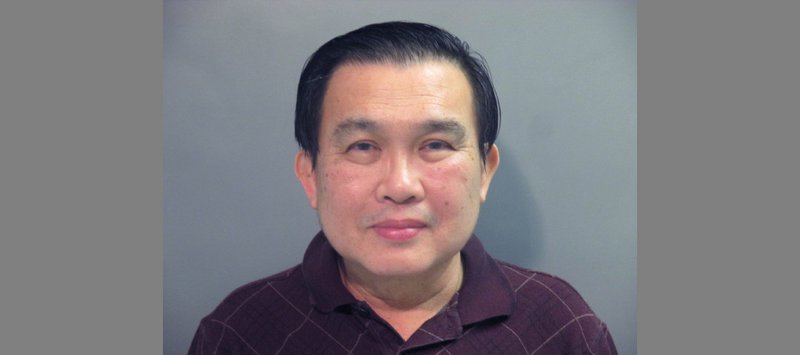FAYETTEVILLE -- A former University of Arkansas, Fayetteville professor faces added charges of wire fraud related to his China ties and the use of university research facilities, as well as new charges of making false statements to the FBI.
Simon Ang is set to appear Monday for an arraignment in U.S. District Court in Fayetteville, according to court records. He was arrested in May 2020 and fired by the university less than two months later.
Ang, who joined UA's faculty in 1988, was director of the university's High Density Electronics Center, or HiDEC.
A superseding grand jury indictment filed in court Wednesday lists a total of 55 counts of wire fraud, plus other charges.
Most counts of wire fraud are the same as stated in an earlier indictment, which described Ang as failing to disclose ties to China and Chinese companies while pursuing NASA and U.S. Air Force research grants. Last July, Ang pleaded innocent to these and other charges.
[DOCUMENT: Ang superseding indictment » arkansasonline.com/731indictment/]
The latest indictment adds 13 counts of wire fraud.
In 2018, Ang was part of the ownership group for a China-based company referred to in the court document as "XZENIA," the court document states. The company makes glass coating materials for car windshields and solar panels, according to the indictment.
Ang "used research laboratories and equipment owned by the University of Arkansas to perform research and development for XZINIA," the indictment states.
Payments were made from the "XZENIA" company -- a shortened name for Jiangsu Xuanzhi New Materials and Technology Co., Ltd., according to the indictment -- to a limited liability company formed by Ang called Nano Materials Technologies, LLC, the court document states.
Ang "knowingly made materially fraudulent misrepresentations and omissions in email exchanges containing contract drafts and invoices between Nano Materials Technologies, LLC, and XZINIA in order to cause certain wire transfers of money to be sent from XZINIA to a bank account [he] controlled in the name of Nano Materials Technologies, LLC," the indictment states.
The electrical engineering professor "did not disclose his affiliation with, employment with, and ownership in any companies in China to the University of Arkansas" or government funding agencies, and he did not reimburse UA for the use of university resources, according to the indictment.
Ang also "instructed researchers that he supervised at the University of Arkansas to conduct research and work on behalf of the companies he was affiliated with in China," the indictment states.
The wire transactions listed in the indictment add up to $515,548 in NASA grant money, $1,074,811 in Air Force grants, $31,830 in UA salary paid to Ang and $88,000 in payments made to Ang's limited liability company.
On Friday, UA spokesman Mark Rushing referred to past university statements when asked for comment about the new charges against Ang. Rushing has previously said the university is actively cooperating with the federal investigation.
CHINESE PAYMENTS
The new indictment also adds two charges of making false statements, including telling an FBI agent in May 2020 he was not the holder of Chinese patents.
The indictment states that Ang is listed as the inventor for "numerous" patents in China. The court document also includes more description of Ang participating in what are known as Chinese talent programs.
Last year, FBI Director Christopher Wray gave a talk describing such Chinese talent programs as a government effort "to entice scientists to secretly bring our knowledge and innovation back to China."
The U.S. Department of Justice in recent years has pursued economic espionage charges against some researchers working in the U.S., but no such charges have been filed against Ang.
The recent court filing states that Ang received "large sums of money" from the Chinese government. The court document describes a portable hard drive with a document saved by Ang stating he received a one-time Thousand Talents Program grant of 1 million yuan.
According to current exchange rate information, that works out to about $150,000 according to current exchange rate information. This money was deposited into back accounts controlled by Ang in China, the indictment states.
Ang did not disclose his receipt of this money from the Chinese government to UA or U.S. funding agencies, according to the indictment.
The superseding indictment also lists two charges related to making false statements in applying for a passport.
Ang was released on a $200,000 bond to home detention on May 29, 2020.
Drew Ledbetter, an attorney representing Ang, did not respond Friday to an email and phone message.
A jury trial for Ang has been set for Nov. 8.

